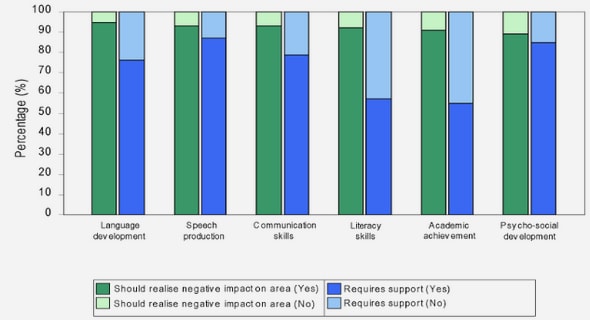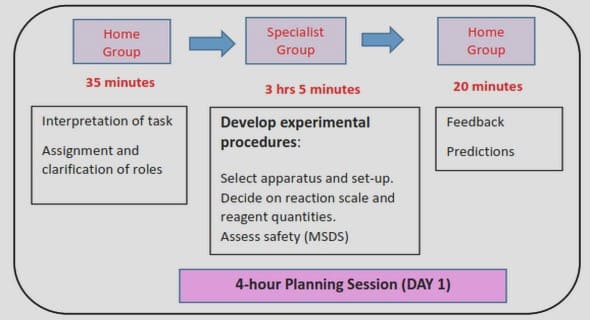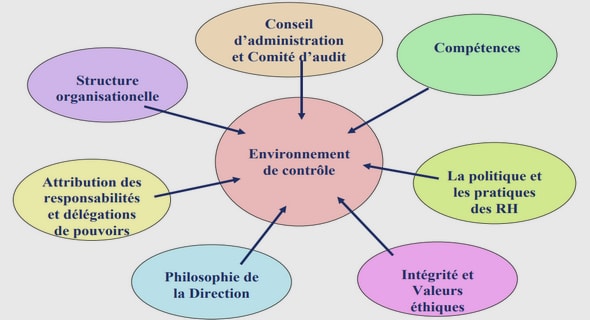Get Complete Project Material File(s) Now! »
CHAPTER2 A GENERAL OUTLOOK ON THE CONCEPT OF THE DIVINE.
THEISM
Deity or the concept of the divine is the root of religion. There can be diverse perceptions of the divine depending on racial, social and cultural differences. Despite these perceptual differences there seem to be a general belief that the concept of the divine is a reality even though there is a class of people who contend that there is no God; as stated in chapter one, such beliefs arise out of unacceptable definition of God or the divine.The concept of the divine as used in this study refers to the idea of a deity, god or an object of worship or reverence in one’s religion. The researcher believes that the concept of the divine pertains in most religions of the world. It is the approach to the concept that varies. Thus all religions, advanced or primitive, view the divine from different perspectives and hence have different outlook and approach to it. Human beings are basically the same but different in colour, appearance and behaviour, hence our.perception of the divine can definitely not be the One .would wonder why the » researcher adopts the,’term·conc~t of th~ ‘divhie’:hlsi~d’ of a’deiey 8ri%a ill thiS: st#dy. ! He is convinced that the term divine implies more than God or deity. It also implies anything regarded as sacred for example the ancestors, spirits, saints and angles. It is also an undisputed fact, that whether it is evolutioruuy or revolutioruuy force that caused our world to be, there must be a force or power behind the universe. And this power, which eludes us, the researcher believes, is what we call God or in the words of Sir J. G Frazer-the great cele8tial phenomena peI »SOnified.
Eminent scholars of religions have propounded many theories on this issue. For example. in trying to find a common origin of religious sentiment, Sigmund Freud, ac~~rding to Allport (1967:8), maintained that the individual’s conception of God is in every case modelled after the father. The researcher has no misgivings about this claim per se because he believes strongly that we learn about the unknown from the known. A physical biological father is the protector, provider and hence sustainer of the family, and seeing God in that perspective, he feels, is in the right line. Therefore it is justifiable to say that our personal relation with God is similar to our relation to our physical or biological father; but to add, « God is at the bottom nothing but an exalted father » renders Freud’s claim a mere fantasy. In this light the researcher would like to differ because he does not see the idea of God as a mere fantasy. In dealing with the concept of God, Goldbrunner ( 1964: 160) qu0tes Jung as saying,The concept of God is a necessary psychological function, irrational in its nature, which has nothing at all to do with the question of the existence of God. The intellect can never answer this question; still less can it provide any proof of God’s existence. In any case such proof is entirely superfluous, for the idea of an all-powerful divine being is present everywhere, if not consciously then unconsciously, since it is an archetype. Something or other in our psyche has superior force and if it is not consciously a God, it is at any rate the « belly » as St. Paul says. I therefore think it wise to acknowledge the idea of God consciously; otherwise something or other will become God, usually something very inadequate, the sort of,th~ng t/ia{an 0 « eplighteneyl » ~onscious~s may ~ell concoct./ Our intellect mis long kiiown· ikatii is.’ impossible ‘ imagine the/act and :m.ode-:ofGod ‘s ·existence ·accuraJe the mind can conceive of anyproces~ « !~ich is .n?t caus(.llly dete »‘!iri~d’.. Therefore the researcher does not hesitate to say that the religious beliefs and philosophy, the world over, are fixed on the concept of a universal power, force or energy which is the cause of all life and which informs us about its existence intuitively. Theism, therefore, centres on belief in God or gods who take interest in human affairs. Theistic religions· have been subdivided unto monotheism and polytheism. The monotheistic religions such as Christianity, Islam and Judaism believe in a one jealous God who does not allow the reverence of any other deity. On the . other hand the . polytheistic religions, as a way of differentiation, believe in the existence of one Supreme God with many gods under him as his regents or messengers, or children. Now, the researcher believes that the core of a theistic religion is the presence of a deity or deities on whom the religion is centred. Dichotomising the deity concept into monotheism and polytheism, the researcher believes, hinges on cultural and social differences of the believers of these religious concepts. So if the two factions understand the said differences there would be a common meeting point, which is theism.Another issue that needs discussion is atheism, which the reseacher feels R.S. Denisoff and R. Wahnnan (1983: 216) have classified as abstract idealism. According to them, Abstract idealism (from a sociologist point 9f view) is the belief in a holy way of thinking and behaving. Religions of abstract ideals don’t have god in the sense western religions do and therefore do not centre on the worship of a god. The emphasis in such religions is on the searchfor a higher state of being, on attempting to reach a higher state of consciousness, and on becoming « at one with the universe », sometimes in a later incarnation. The religion points the « way. » This concept, like theism, boils down to one fact-that this world· ·Of ours is full of mysterious entities or forces beyond the understanding and control of humanity, and in our attempt to .understand and .control· them -we -seek ·to’·attain ·some ·state-of perfection·· through a deityconcept:and:or·non’ deity,concept »‘<abstraotcidealism asthe,casermay::be. Atheism, therefore; is not necessarily .anti·religious odrreligiimsr· Ii’is a situation :Wberec one’s religious sentiments are not centred on any deity – hence abstract idealism. In an attempt to harmonize the theistic and atheistic concepts Allport (1967:25) asserts. « All our cognitive operations press towards coherence and unity. Whether we are theists or atheists. We are prone to stereotype the world we live in. Wherever there is uncertainty, hope springs eternal. The irreligious individual no less than the religious plans for a happy landing » ;]( » No matter how hard we try to stud)’ the why ‘ana how ornatur~ we realize .that our knowledge and solution to empirical problems are incomplete. We thus realize our nothingness before the force or forces that control this world. Therefore it is a natural sequence that we look elsewhere for solution to our insurmountable problems outside our cognitive structure. Life is full of uncertainties and we resist these uncertainties with optimistic pursuit. And the most common optimistic pursuit in this world of evil and suffering is to look up to a heavenly father or a transcendental deity for solution to the problems. Prayer to one’s ultimate reality or a deity~ in tiine of trouble or need, is intrinsic. We all resort to prayer in one form or the other to our deity or object of worship,one time or the other, when we are faced with serious crisis in life. Our quest for meaning of the mysterious and problems of life inclines us to a deity concept for solution. This does not however mean that the deity concept is a fantasy.
Dedication
Acknowledgement
Declaration
Abstract
CHAPTER l INTRODUCTION
1.1 THE STATEMENT OF THE PROBLEM
1.2 SOME DELIMITATIONS AND LIMITATIONS OF THE STDY
1.3 SCOPE OF THE STUDY
1.4 SOME IMPLICATIONS ARISING OUT OF THE PROBLEM
1.4.1 THE SETTING
1.5 THE TITLE AFRICAN TRADITIONAL RELIGIONS
1.6 RESEARCH METHODOLOGY
1.6.1 THE PHENOMENOLOGICAL APPROACH
1.6.1.1 INTENTIONALITY
1.6.1.2 ESSENCE
1.6.1.3 EPOCHE
1.6.2 HERMENEUTICAL APPROACH
1.6.3 HISTORICAL APPROACH
1.7 THRSWDY . »
1.8 SAMPLlNG AND’SAMPLlNGTECHNIQUES
1.9 QUESTIONNAIRES
1.10 OUTLINE OF TlIE CHAPTERS
CHAPTER2 GENERAL OUTLOOK OF THE CONCEPT OF THE DIVINE
2.1 THEISM
2.2 THE CONCEPT OF THE DNINE-GOD
2.2.l THE SUPREME BEING
2.3 MONOTHEISM
2.4 POLYTHEISM
2.4.1 SPIRITS
2.4.2 ANCESTORS
2.4.3 DIVINITIES
2.5 ATTRIBUTES OF GOD
2.6 HUMANS IN THE DIVINE STATUS
2.6.1 KINGS AND CHIEFS
2.6.2 PRIESTS
2.6.3 MEDIUMS
2.6.4 DIVINERS AND MEDICINE MEN
2.7 THE LITERATURE AND THEORETICAL SURVEY
CHAPTER3 THE CONCEPT OF GOD
3.1 GOD AMONG THE AKAN OF GHANA.
3.1.1 THE AKAN GOD AS SKY GOD
3.1.2 GOD AS CREATOR AMONG THE AKAN
3.1.3 ANCESTOR VENERATION IN THE AKAN CONCEPT OF THE DNINE
3.1.4 THE DIVINITIES AMONG THE AKAN
3.1.4.1 THE ORIGIN OF THE DIVINITIES
3.1.4.2 THE POWERS OF THE DIVINITIES
3.1.5 AKAN CLAN SYSTEM
3.2 THE BASOTHO CONCEPT OF GOD
3.3 FOREIGN INFLUENCE ON AFRICAN CONCEPT OF THE DNINE
3.4 THE INFLUENCE.OEUIRISTIANITY ON BASOTHO RELIGION
3.5 SOME PROBABLE CAUSES OF THE MISSIONARY
CHAPTER4 RELIGIOUS PHENOMENA AND THE CONCEPT OF THE DIVINE IN LESOTHO AND GHANA
4.1 WORSHIP
4.2 WORSHIP AMONG Tiffi AKAN OF GHANA
4.3 OTHER AKAN RELIGIOUS PHENOMENA
4.4 WORSHIP AMONG THE BASOTHO
4.5 OTHER BASOTHO RELIGIOUS PHENOMENA
CHAPTERS 5 COMPARATIVE ANALYSIS OF THE RESEARCH FINDINGS
5.1 INTRODUCTION
5.2 THESYNOPSIS. OF GHANA AND LESOTHO TRADITIONAL RELIGJON
5.3 ANALYSIS OF THE QUESTIONNAIRES
5.4 INTERVIEWS
5.5 PERSONAL OBSERVATION
CHAPTER 6 SUMMARY OF THE FINDINGS
6.1 INTRODUCTION
6.2 THE CONCEPT OF THE DIVINE (SUMMARY)
6.3 THE MISSIONARY INFLUENCE
6.4 RESEARCER’S REFLECTION ON THE IMPLICATIONS OR THE FINDINGS
6.5 SYNTHESIS
6.6 RECOMMENDATION FOR FUTURE STUDY
6.7 CONCLUSION
6.8 BIBLIOGRAPHY
GET THE COMPLETE PROJECT
A COMPARATIVE STUDY OF THE CONCEPT OF THE DIVINE IN AFRICAN TRADITIONAL RELIGIONS IN GHANA AND LESOTHO


